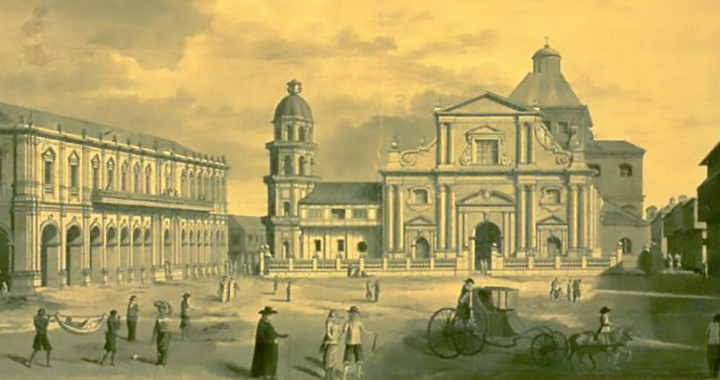In his journal article published in 2007 in the Philippine Review of Economics, economist Robert H. Nelson argued that the corruption in the Philippines is a product of an acquired colonial identity that brought forth cultural attitudes and values that stood in the way of democratic principles.
He noted that corruption in the country resembles corruption in Latin American countries such as Argentina, Mexico, and Peru. Furthermore, he also pointed out that the Philippines and most Latin American countries have similar historical and sociocultural identities characterized by the colonization of Spain and the introduction of Roman Catholicism.
Historical and Sociocultural Origins of Corruption in the Philippines
Nelson essentially argued that the Spanish and Catholic roots of the Philippines are the culprits behind the pervasiveness of corruption in the country. Of course, this argument is controversial. However, important to note that other scholars have provided similar or supplementary hypotheses and observations.
Influence of Colonizers
The study of Munyae M. Mulinge and Gwen N. Lesetedi explored the historical and cultural underpinning of corruption in countries in Sub-Saharan Africa. They explained that during the colonial period, colonizers forced their subjects to do things against their will.
The longstanding domination and exploitation eventually created a behavioral predisposition leaning toward competition for survival and self-preservation.
Another study by Carlyn Dobson and Antonio Andres explained the colonial groundwork for corruption in Latin American countries. As noted, to maintain dominance, colonizers established institutions that restricted the natives from accessing properties, education, and political power.
The institutionalization of restrictions has become the norm in Latin America. Hence, when former colonies declared their independence, the corresponding leadership has maintained these institutions and restrictions as a means to maintain their power.
European colonization of newer territories undeniably created social and political structures that provided the groundwork for sociopolitical behaviors leading to the creation of a culture of corruption. However, apart from colonization, another European import has been deemed instrumental in promoting behaviors and attitudes relating to abuse of authority.
Impact of Roman Catholicism
Aside from colonization, religious indoctrination has also played a role in creating and nurturing a culture characterized by abuse of power and irrational submission to authority.
The cross-national by Daniel Riesman cited religion as a critical factor when determining the nature of corruption in a former European colony. To be specific, the study compared countries indoctrinated either under Roman Catholicism or Protestantism.
His study revealed that countries colonized by Protestants, particularly the former colonies of the former British Empire, are usually less corrupt and more democratic than countries colonized by Spain and Portugal.
Treisman explained that, unlike Roman Catholicism, Protestantism is less hierarchical and more egalitarian and individualistic. Furthermore, it does not emphasize familial loyalty in its religious teachings. Adherence to organizational hierarchy and close familial ties are common in politically corrupt societies.
Furthermore, the legacy of British colonial rule led to the adoption of the common law system. The common law system is inherently different from the civil law system used in continental Europe and its former colonies because it provides the public with a defense against a government that might exert power to regulate or take over their properties.
It is important to take note of the fact that the civil law system is more orientated toward the state or the government and it provides authorities with relevant powers and rights needed to control and manage the economy.
Toward Theorizing the Root Causes of Corruption in the Philippines
Based on the argument of Nelson and coupled with related arguments and conclusions from other researchers, there is a strong reason to believe that there is a correlation between the corruption in the Philippines and its Spanish and Catholic heritage.
The legacies of Spanish colonial rule and Catholicism have created cultural values and norms that created a society more predisposed toward corruption. These values and norms include self-preservation through power and abuse of authority, profound emphasis on hierarchy and social status, and familial values or close familial ties that promote nepotism.
One cannot deny that tracing the cause or origin of corruption in the Philippines from its colonial past is an interesting approach to understanding the sociocultural underpinning of corrupt practices in the government.
However, the argument noted above remains a hypothesis. It is possible that the normative behaviors and values emerging from long periods of colonization have made corruption a cultural problem. Of course, to understand the origin of corruption in the Philippines better, it is also important to look at the phenomenon through different lenses.
FURTHER READINGS AND REFERENCES
- Andres, A. R. and Ramlogan-Dobson, C. 2011. “Is Corruption Really Bad for Inequality? Evidence from Latin America.” Journal of Development Studies. 47(7): 959-976. DOI: 1080/00220388.2010.509784
- Mulinge, M. M. and Lesetedi, G. N. 1998. “Interrogating Our Past: Colonialism and Corruption in Sub-Saharan Africa.” African Journal of Political Science. 3(2): 15-28. JSTOR: 23493651
- Nelson, R. H. 2007. “The Philippine Economic Mystery.” Philippine Review of Economics. 44(1)
- Treisman, D. 2000. “The Causes of Corruption: A Cross-National Study.” Journal of Public Economics. 76(3): 399-457. DOI: 1016/s0047-2727(99)00092-4

